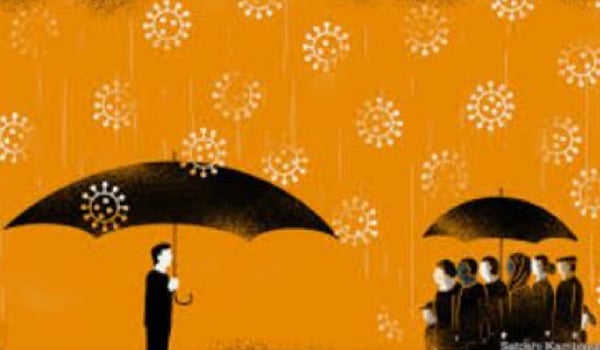
Lancet, Correspondence, by David Chiriboga, Juan Garay, Paulo Buss, Rocío Sáenz Madrigal, Laetitia Charmaine Rispel, 15 May 2020
Widespread reports of disproportionate impact of the COVID-19 pandemic among already vulnerable communities worldwide, from New York City to New Orleans and Chicago, to the shocking pictures of bodies lying in the streets in Ecuador, represent a prelude of the impact in low-income and middle-income countries, home to more than 80% of the world’s population. Disadvantaged people are at higher risk of infection and death from COVID-19, and they have less access to care due to systems that treat health as a commodity and not a human right. Furthermore, most health-care systems are not prepared to handle a pandemic of this magnitude. Overwhelmed European and US systems are ominous reminders of the challenges faced in poor countries.
Despite widespread acts of solidarity, we are witnessing unconscionable stockpiling by wealthy countries and attempts by many to extract profits from the crisis. Hoarding and speculation should be condemned in the strongest terms and measures taken globally to ensure equitable access for countries with fewer resources.
On April 21, 2020, we submitted anopen letter to the UNcalling for ethical global leadership to mitigate the unfair additional health and socioeconomic burden of this pandemic on disadvantaged populations. We proposed to create a multisector Global Health Equity Task Force, housed within WHO, charged with taking necessary steps for a comprehensive, equity-focused response. This Task Force would develop strategies for fair allocation of resources; including legislation to trigger coordinated production of and access to quality generic diagnostics, medicines, vaccines, supplies, and equipment, abolishing any pandemic-related patents. It would also support the development of enhanced recommendations on preparedness and response for our most vulnerable populations, and tailored, secure de-confinement strategies. Additionally, it would promote steps to strengthen universal health-care systems globally and to address the economic disparities that have led to this appalling inequity.
The open letter has been co-signed by more than 120 diverse entities, representing more than 5 million public health practitioners, scientists, academics, health-care professionals, and advocates, including the World Federation of Public Health Associations, Latin American Alliance for Global Health, InterAcademy Partnership, World Federation of Critical Care Nurses, and American Academy of Pediatrics. The letter has also been endorsed by former heads of state and ministers, as well as an array of advocates for the right to health from more than 50 countries and a wide spectrum of cultures, contexts, and ideologies, echoing the plea for an equitable response to the pandemic.
VISUAL, by Satoshi Kambayashi



